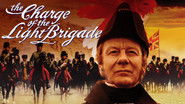Cheese Hoven
This film could and really should have a masterpiece. There is a strong sense of period enhanced by what appears to be authentic 19th century barrack room slang and music from the period. It could be argued that the film is rather slow, but to my mind a lingering on the enormous wealth of detail, adds rather than detracts from the film's appeal. There are also many strong performances, in particular, Trevor Howard is imposing as the stubborn commanding officer.Yet I find this film unsatisfying and somewhat boring to watch. The fault, I feel, is that the film's message is hammered home over and over again. A case in point: Howard instructs an inferior officer to spy on David Hemmings. The officer is reluctant and when pressed says he would have to inform Hemmings that he was instructed to spy. He then relates a touching tale of how he has worked his way up and been sober for many years. Howard is completely contemptuous and tells him his career is now in ruins. This scene is highly memorable and moving and had it been left at that, it would have been been effective. We understand the injustice and brutality of ruling elite.However, we immediately see this officer becoming drunk followed by him being horse whipped, something that belabours the message. In another scene an officer is seen trying to subdue a horse through aggression. Hemmings shows up and subdues the horse "through kindness" as he says. Howard immediately flares up when he sees this. And in another, an anti-war protest is violently broken up. Yes we get the message: War is bad, and the military machine is ugly and inhuman. But it need not be repeated over and over again.
beresfordjd
I really liked this film the first time I saw it on its original release. It has only improved with age. David Hemmings is terrific as an idealistic young officer railing against the awfulness of the soldiers treatment. Trevor Howard is truly hateful as Lord Cardigan refusing to allow any way but his own cruel, bullying ways as the best incentive for encouraging his men to fight. A towering overblown egoist.Sir John Gielgud is marvellous as an almost permanently confused upper class twit and he steals every scene he is in. A well scripted and wonderfully directed piece of work.
Leofwine_draca
THE CHARGE OF THE LIGHT BRIGADE is a wannabe 1968 epic about the Battle of Balaclava and the infamous charge of the British light cavalry which ended in disaster. This lengthy film attempts to show the context for the debacle and the events which led to it, and it really turns out that it was all down to miscommunication and the general incompetence of a handful of men.The film was directed by kitchen sink stalwart Tony Richardson with a kind of weary realism that makes it rather tedious to watch in places. The attention to detail and costume is strong, but the battle scenes ill realised and not very convincing, particularly at the disappointing climax which is merely adequate. The film does contain a handful of fine performances that alone make it worth a watch. David Hemmings is fine as the idealistic captain and Trevor Howard constantly astonishing as his pig-headed nemesis. John Gielgud makes a fine turn as the doddery aristocrat and Harry Andrews typically shines as his aide. The rest of the cast is a mixed bag with some characters, like that of Vanessa Redgrave, feeling extraneous to the main story.
Photoscots1 .
I've always liked this film since I first saw it in the late 1970's. There are so many interesting aspects of this movie from the dandified dialogue to the cartoon inserts which are done in the style of Victorian illustrators of the day.A lot of high caliber actors really shine with the material including David Hemmings with his highly strung manner, Trevor Howard who has the funniest scene in the film when he spanks Fanny Duberley and the Lord Lucan of Harry Andrews who is constantly at war with Lord Cardigan, both being related and despise each other. Even Geilgud shines as the confused Lord Raglan and his ineptitude in the role of commander really highlights the inadequacy of the British military of that age which, if you read the history books, were outclassed by the French management of their forces.The injustice of the class system is another facet of the film which really gets under the skin and leaves a lasting impression of the British Empire and the military which held it in place. This is particularly the case when one of the Sergeant Majors is flogged for being drunk on duty after Cardigan insists he spy on Nolan played by David Hemmings. All of this demonstrates the sort of internal politics that goes on within organizations but not just the military.The battle scenes are very impressive, especially the final charge of the Light Brigade and the explanation of how this failure in military decision making occurred, is made perfectly clear. Cinematography is first rate and the overall art direction delightful. One of the great anti-war movies largely under appreciated by the movie going public of the 60's and has gained much more respect in recent years when compared with the dross being put out today.



